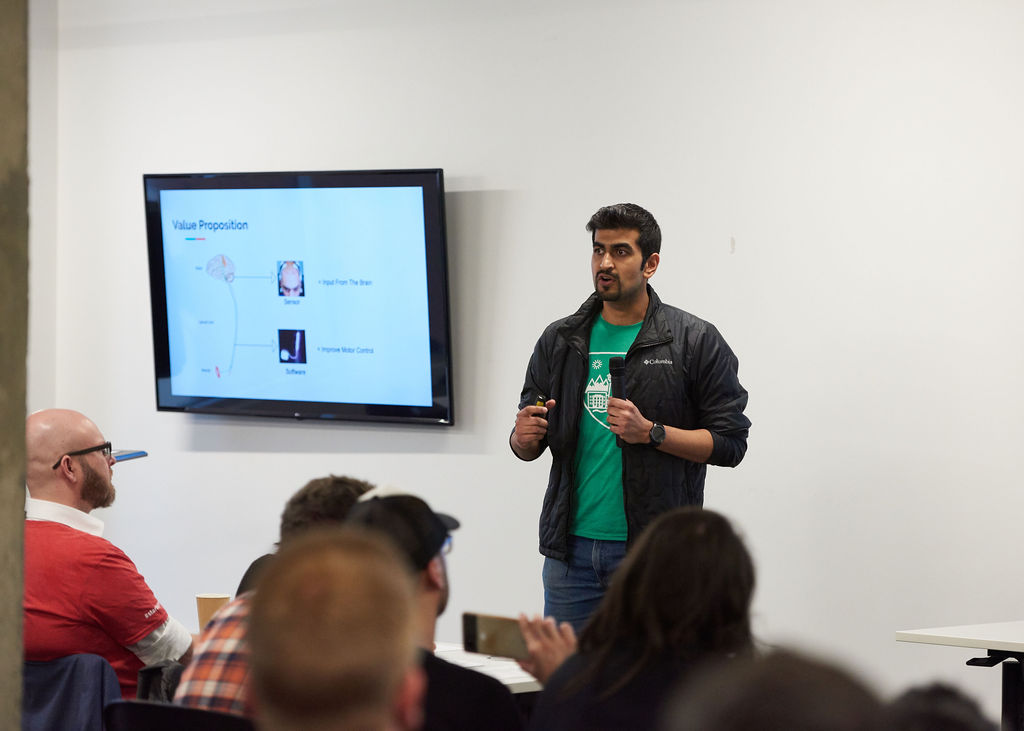
Breaking into machine learning: How this UBC MBAN alum pivoted to a career in AI

Driven by an interest in machine learning and data-driven problem solving, Vibudh Singh has built a career at the intersection of business and artificial intelligence (AI). After completing the Master of Business Analytics (MBAN) program at the Robert H. Lee Graduate School at UBC Sauder School of Business, he interned at Boeing as a Data Scientist—an experience that marked his pivot into machine learning. Now a Lead Machine Learning Engineer at S&P Global, he applies large language models to transform the finance sector. Singh shares how UBC Sauder shaped his journey and empowered him to create real-world impact.
Where are you from, and where are you currently based?
I’m originally from India and currently based in Calgary, Canada.
What are you passionate about—personally or professionally?
Professionally, I’m passionate about building intelligent, responsible AI systems that solve real-world problems. My background is in machine learning (ML) engineering, and over the years, I’ve developed and deployed multiple ML algorithms, with a strong recent focus on large language models (LLMs) and natural language processing (NLP). I enjoy exploring how these technologies can be applied to finance, education and user-focused applications.
Personally, I enjoy hiking, camping, paddleboarding and playing sports like basketball and badminton. This year, my goal is to improve at golf and pickleball. I’m also committed to lifelong learning and considering a PhD in AI or NLP.
Can you walk us through your career journey since graduating from UBC Sauder?

After completing the MBAN, I had the opportunity to intern at Boeing as a Data Scientist—a role that UBC Sauder helped me secure. This experience was instrumental in transitioning my career into data science and machine learning. At Boeing, I worked on developing an anomaly detection algorithm for aircraft systems, which gave me hands-on experience applying ML techniques to critical, real-world problems in a high-stakes environment.
Following that, I continued building my foundation in AI and eventually joined S&P Global, where I currently work as a Lead Machine Learning Engineer. My focus has been on implementing LLMs in the finance domain, leading projects around retrieval-augmented generation, fine-tuning models and building end-to-end machine learning pipelines.
Alongside my professional work, I’ve explored personal ventures, including running a small business offering online courses and 1-on-1 support, and experimenting with chatbot development using custom LLM pipelines.
Why did you choose UBC Sauder and your specific program?
Before pursuing the MBAN, I worked as a Business Analyst, where I focused on using data to drive business decisions. While I had a strong foundation in understanding business needs, I wanted to build deeper expertise in statistics, machine learning and data-driven problem-solving to expand my career opportunities.
UBC Sauder’s MBAN program offered the perfect blend of business strategy, statistical modelling and technical training—making it the ideal next step in my career.
I was also drawn to UBC Sauder because of its global reputation as one of Canada’s top business schools. The faculty includes leading experts in analytics, AI and business innovation, and the program’s strong ties to industry give access to real-world projects and hands-on experience.
How did your experience at UBC Sauder shape your career path or contribute to your growth?
UBC Sauder played a pivotal role in shaping both my career trajectory and personal growth. One of the most significant contributions was the internship opportunity I secured during the program, which was directly supported by the school’s career services and network. The Business Career Centre (BCC) regularly organized events that connected students with top-tier employers, including internship showcases where I had the chance to meet industry leaders face-to-face.
At one such event, I connected with the VP of the Canada Energy Regulator (CER), which eventually led to a full-time position as a Data Scientist at CER. It was an incredible example of how UBC Sauder’s strong industry ties and proactive alumni engagement translate into real opportunities for students.
Beyond career placement, the program helped me grow holistically, both technically and professionally. The coursework strengthened my foundation in analytics and machine learning, while group projects and interactions with a diverse cohort enhanced my communication and leadership skills. The alumni network was also invaluable in providing mentorship, guidance and insight into different career paths.
Is there a standout memory or moment from your time at UBC Sauder that you often reflect on?
One of the most memorable experiences from my time at UBC Sauder was the late-night study sessions in the breakout rooms with my MBAN cohort. We would often stay late on campus, working through complex assignments and projects together, as well as juggling deadlines, debating ideas and pushing each other to do our best.
What made those moments truly special was the group itself: an incredibly talented and intellectually curious set of individuals from diverse professional and cultural backgrounds. We had engineers, consultants, economists and analysts who each brought a unique perspective to the table. It was inspiring to collaborate with such smart, driven people who were always eager to learn and support one another. The bonds we formed during those long nights continue to stay with me, both as friendships and as a strong professional network.
What advice would you give to someone considering a business education at UBC Sauder?
My advice would be to embrace both continuous learning and collaboration. Developing strong technical skills is essential—not just during your time at UBC Sauder, but throughout your entire career. Technology is evolving rapidly, so staying curious and open to new tools, methods and innovations will set you apart.
At the same time, never underestimate the value of learning from your peers. UBC Sauder brings together a diverse cohort of people with various backgrounds and experiences. Working closely with such talented individuals will challenge your perspectives and deepen your understanding. Getting projects done as a team in this rich environment is where much of the real growth happens, both technically and personally.